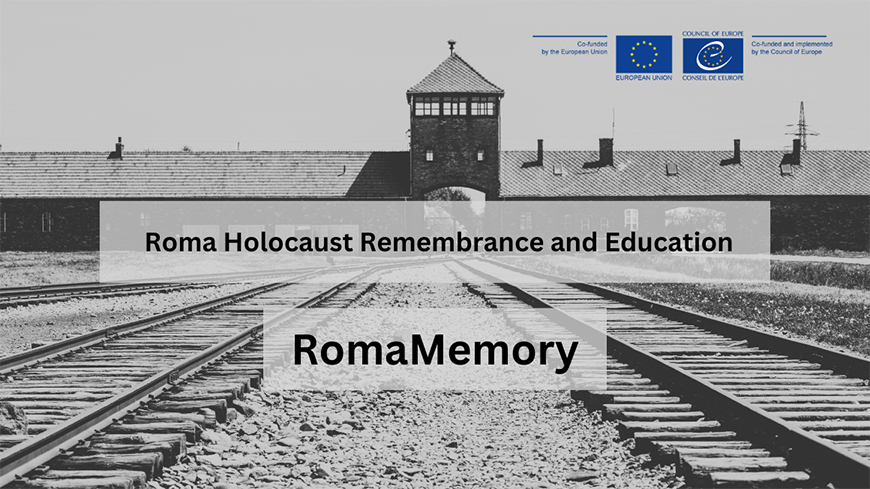Remembering the Roma Holocaust

During the Holocaust, a defining legacy of European history, six million Jewish children, women, and men were murdered. While Jews were the priority target of the Nazi regime, other groups were also persecuted, including Roma, persons with disabilities, Slavs, Jehovah’s witnesses, LGBTIQ people and political dissidents. The Roma Holocaust, often overshadowed in historical narratives, is a crucial chapter in the story of World War II. It is essential to remember and pay tribute to the hundreds of thousands of Roma and Sinti who perished in Nazi death camps. This remembrance is part of a broader effort to honour all those who suffered during this dark historical period.
This topic of Roma Holocaust is closely linked with the European Commission's efforts towards Roma inclusion.
Moreover,the Roma Holocaust is a significant focus of collaboration between the European Commission and the Council of Europe. Their joint programme, Roma Holocaust Remembrance and Education (RomaMemory), promotes the inclusion of the Roma Holocaust in school curricula, raises awareness among journalists, advances the fight against discrimination and antigypsyism, and supports the European Roma and Sinti Holocaust Memorial ceremony on 2 August in Auschwitz-Birkenau. Officially launched in May 2024, the programme will run for 24 months.
Through this project, an informal European coalition of inter-governmental organisations and Roma and Sinti organisations will be established to align priorities and coordinate initiatives in the area of Roma Holocaust remembrance and education. The project will enhance cooperation with the media, public authorities, and Roma youth organisations to improve outreach to the general public on the topic of the Roma Holocaust and advance recognition and remembrance across EU Member States.
Some of the key activities of the RomaMemory project include forming the Coalition for Roma Holocaust Remembrance in collaboration with key stakeholders like the International Holocaust Remembrance Alliance (IHRA) and the European Roma Institute for Arts and Culture (ERIAC). The project also supports the European Roma and Sinti Holocaust Memorial ceremony on 2 August in Auschwitz-Birkenau. The project promotes the use of educational tools and training programs to guide educators and policymakers on the Roma Holocaust. Additionally, it involves organising roundtable events with high-level officials to discuss the recognition of the Roma Holocaust and its inclusion in school curricula.
- Learn more about RomaMemory.
- Find out more about the EU Roma Strategic Framework (2020-2030) and the Council of Europe Strategic Action Plan for Roma and Traveller Inclusion (2020-2025).
- Lean more about the Commission’s supports to projects aimed at commemorating significant events in modern European history through the European Remembrance Call under the Citizens, Equality, Rights and Values (CERV) Programme. This call prioritises "Strengthening the remembrance of the Holocaust, genocide, war crimes, and crimes against humanity."





